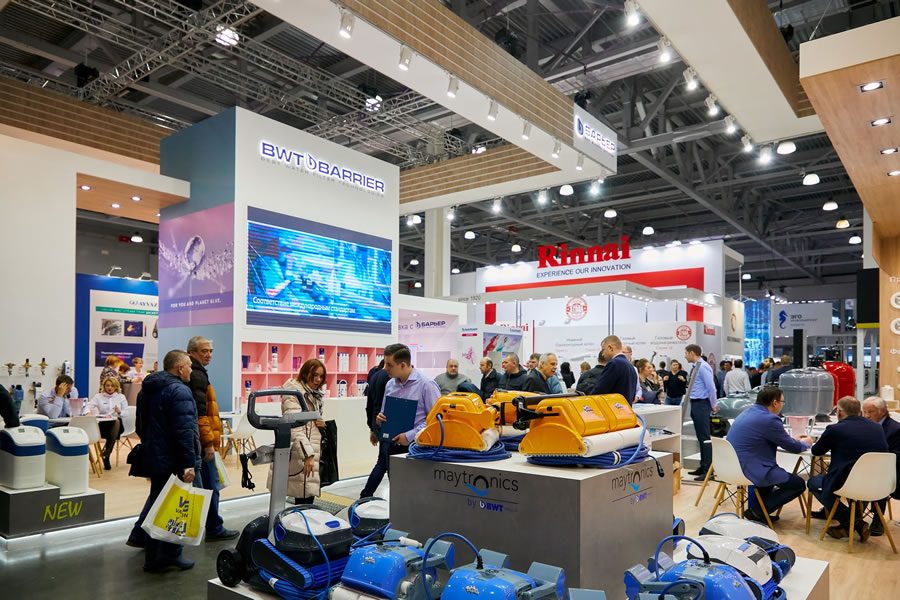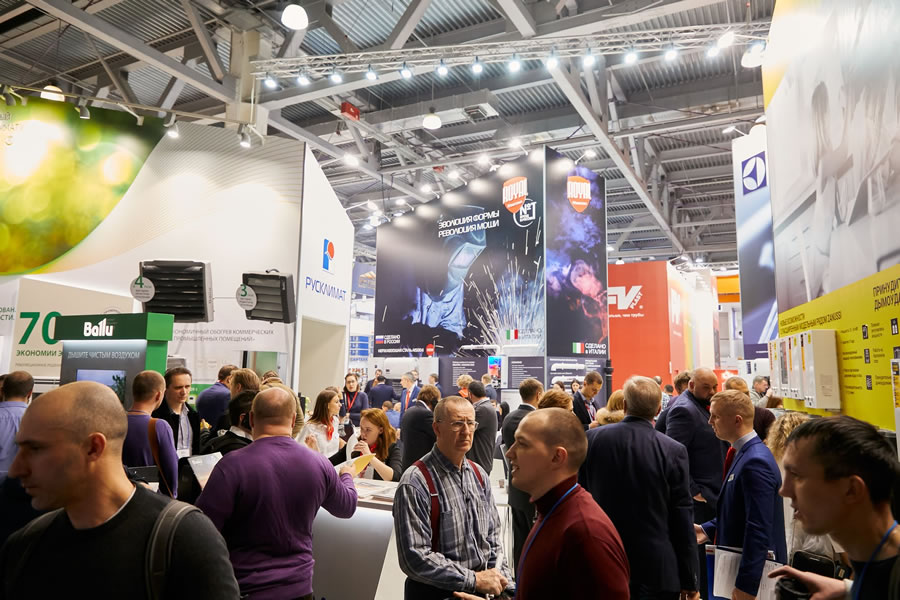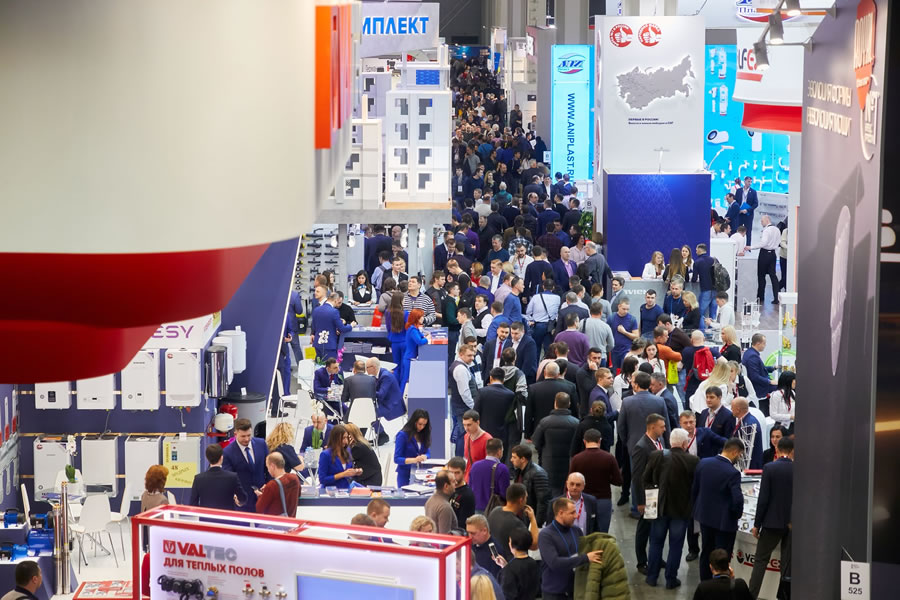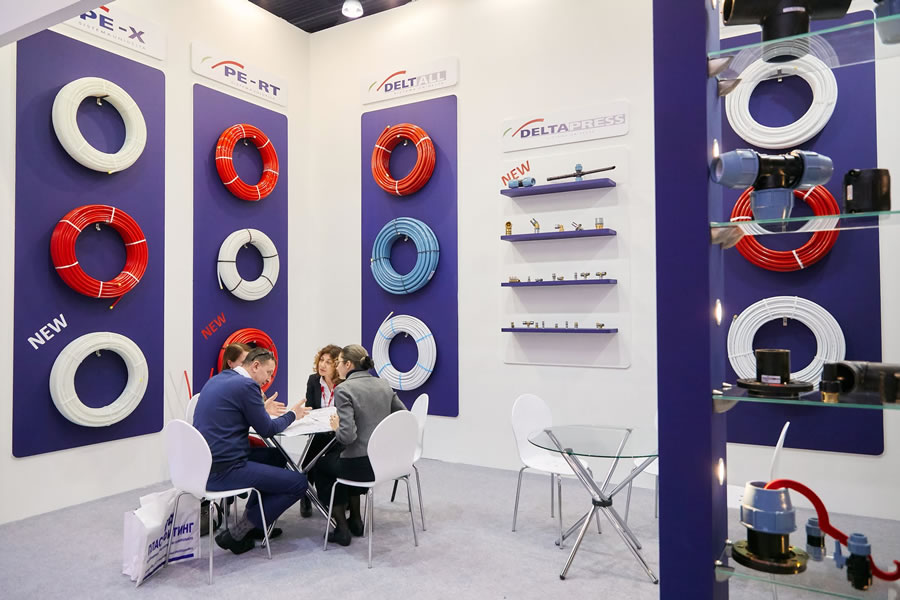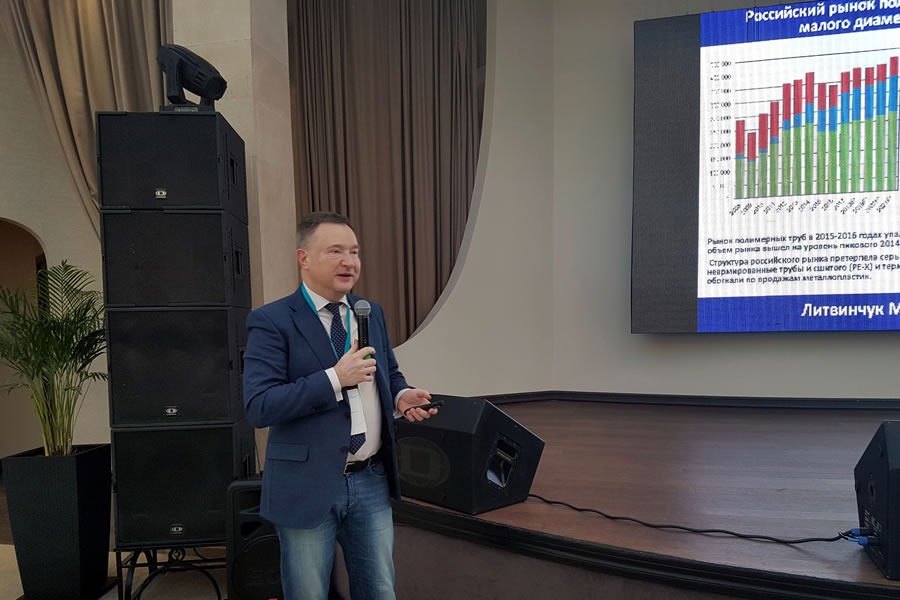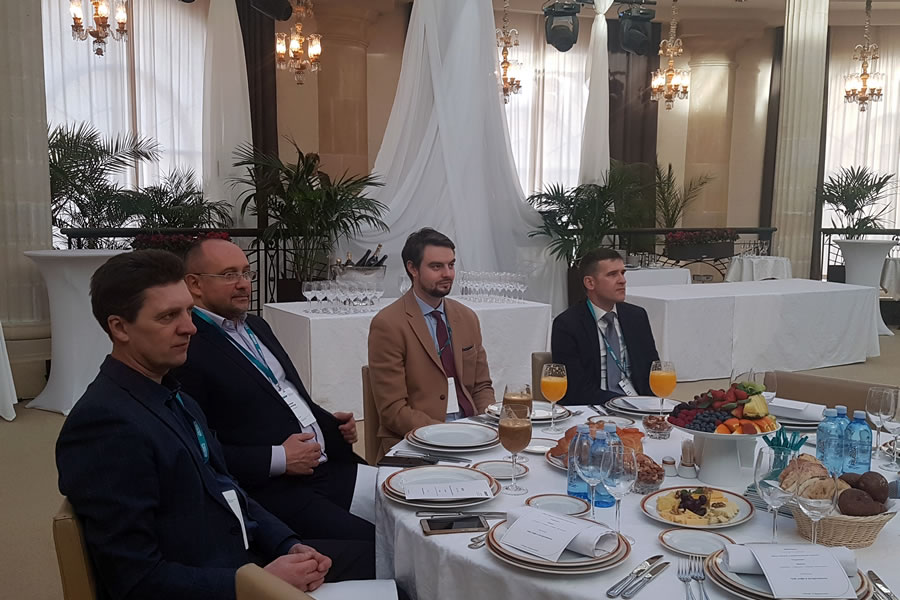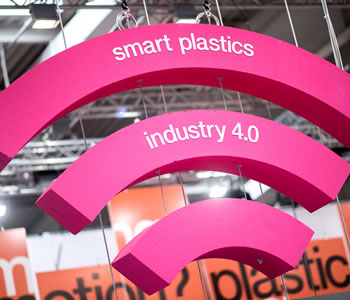Participants of Polypropylene for Indoor Applications: Present and Future business breakfast held by SIBUR specialists in mid-February discussed changes to be introduced to the laws and regulations governing the production and use of polymeric pipes. Based on the discussion results, a working group was established to summarise the proposals and submit them to the regulatory authorities for approval.
Outdated standards
Over 50 representatives of the companies producing household pipes for housing construction and overhaul of buildings attended the event during Aquatherm-2019 exhibition. They included processors of polypropylene produced by SIBUR, the Company's key partners and participants of the construction market.
The event was aimed at gauging the manufacturers' opinion on the compulsory certification of random polypropylene pipes and on major gaps and possible changes in the regulatory policy. The Company's partners were provided with a comprehensive technical questionnaire in advance.
SIBUR staged the event as part of the Aquatherm-2019 exhibition.
“It was important for us to collect opinions and analyse them,” said Yulia Rumyantseva, Director of Composite Materials and Pipes at SIBUR’s Basic Polymers Division. “During the discussion, criteria for compulsory certification requirements for the production of polymeric pipes were proposed. We have also gathered ideas to revise the relevant regulations.”
86% of the respondents agreed that compulsory certification should be introduced as well.
According to the majority of participants, changes should be introduced to two large categories of documents: the production standards (GOSTs) and rules governing engineering infrastructure design and installation. All these documents are outdated and need to be revised.
“In our questionnaires, we asked which document should be revised first and which one is most ambiguous,” says Anton Bakhtin, Expert at the PolyLab technical centre. “According to over half our partners, these are SP 40-101-96 and GOST 32415. The respondents also noted which documents are currently lacking – those referring to glass fibre and aluminium reinforced pipes, as well as pipes used in fire suppression systems”.
Most of the above belongs to the voluntary certification domain, but according to the expert, 86% of the respondents agreed that compulsory certification should be introduced as well.
Today, there is basically no regulatory framework for pipes used in fire suppression systems.
Get rid of counterfeit products
Changes in the regulatory framework are also necessary to remove counterfeit from the market. Unlabelled products are a scourge of the modern industry. “This is a pressing issue not only for the pipe industry,” says Vladislav Tkachenko, CEO of the Pipeline Systems Manufacturers Association. “In every market sector, there are attempts to falsify, fake, counterfeit, supply grey market, you name it.”
During the tender process, it is recommended to consider the provisions of Federal Laws No. 44-FZ and No. 223-FZ On Public Procurement granting a 30-day grace period. This time can be used to examine the supplied materials.
According to him, it is possible to fight against counterfeiting at a number of levels. For instance, accuracy in filling in the project certification at the design stage guarantees quality supplies to the construction companies. During the tender process, it is recommended to consider the provisions of Federal Laws No. 44-FZ and No. 223-FZ On Public Procurement granting a 30-day grace period. This time can be used to examine the supplied materials and withdraw the performance bond in case of a counterfeit.
There are also civil law measures to fight against poor quality products, such as unilateral termination of the contract and reimbursement by the supplier (both for counterfeit supplies and the construction delay).
Another possible solution is a system using cryptography and QR codes. According to Vladislav Tkachenko, this system is currently being developed. First, voluntary additional labelling will be introduced, to be followed by a mandatory one. It will be impossible to win a government tender without a QR code for products.
Analysts' data also indicate the significance of the counterfeiting issue. According to Georgy Litvinchuk, Director of Litvinchuk Marketing, in recent years the polymer pipe market has been staying ahead of the raw materials market by 5–7%. “They seem to use some surrogates or secondary raw materials,” says the marketing expert. “Most large companies stay away from it, but small manufacturers unfortunately do not.”
“The right steps to be taken are the creation of an association and introduction of a mandatory certification,” believes Grigory Litvinchuk.
Speech of Grigory Litvinchuk, Director of Litvinchuk Marketing.
New opportunities
According to the marketing expert, ZapSibNeftekhim may significantly alter the raw material market's landscape.
SIBUR will also support manufacturers of polymeric pipes by opening PolyLab – an R&D centre for the development and application of polyolefins.
After the launch of the new facility for polyethylene and polypropylene production with a total capacity of 2 mt, SIBUR's product portfolio can be expanded with several new solutions for polypropylene pipe production. According to Aleksey Klepikov, Senior Product Marketing Expert at SIBUR’s Basic Polymers Division, the polypropylene production technology at ZapSibNeftekhim will enable manufacturing of random and block copolymer grades for the production of pressure and non-pressure pipes in line with modern market requirements.
SIBUR will also support manufacturers of polymeric pipes by opening the PolyLab – R&D centre for the development and application of polyolefins.
In particular, the centre will feature a line to produce polymeric pipes of 32 and 110 mm in diameter, which will be able to process almost all kinds of polyolefins. Samples will be tested for internal pressure resistance at different temperatures, while block copolymers will undergo strength and rigidity tests. “In the microscopic unit, pipes can be checked for soot distribution,” says Anton Bakhtin. “Products will be tested for slow crack growth and rapid crack propagation. There are very few units of this kind in Russia.”
Following the launch of ZapSibNeftekhim, SIBUR will add new polypropylene piping solutions to its portfolio.
The event will contribute to creation of a working group by the Russian Chemists Union and the Pipeline Systems Manufacturers Association, which will include the Company's key partners.
Marketing experts think that petrochemical products are very promising for construction. According to Petrochemistry in Multi-family Housing Construction research by Rupeс Information and Analytical Centre, there are three key areas for replacing traditional materials and solutions with polymeric ones. They include roof insulation and thermal protection of buildings and indoor systems (pipes, cable trunkings, and ventilation). According to analysts, the petrochemical industry should offer more efficient ways to expand consumption of their materials into these areas.
First step
“One of the biggest concerns for SIBUR is fostering demand for polymeric materials to replace traditional ones,” said Yulia Rumyantseva. “This cannot be done without amending the existing policies and creating a new regulatory framework. At the round table, we discussed aspects that will help us expand into new niches for product consumption and regulate the use of polymeric materials in the domestic market.”
The Russian Chemists Union's primary goal is ensuring that the regulatory framework is adapted to the current environment and contributes to the development of our companies,” said Maria Ivanova, Vice President of the Russian Chemists Union. It is very important to keep up with the current trends and develop modern documents. As a large government-related company, we can help approve all these regulations at the state level: our track record stretches back 20 years.”
Event participants.
The event will contribute to the creation of a working group by the Russian Chemists Union and the Pipeline Systems Manufacturers Association, which will include the Company's key partners. The group will refine the proposals and establish cooperation with associations of designers and construction companies. Once their position is established and agreed upon, the group will submit the documents to the relevant authorities for consideration and approval.
Quoted speech
Maria Ivanova,
Vice President of the Russian Chemists Union
The utilities sector will be driven by the polymer and composite-based industry. This is confirmed by numerous researches of the foreign markets. Polymer solutions are environmentally friendly, have better physical and chemical characteristics and fit perfectly for a circular economy: they can be recycled and are safe for further use in other areas. Their production also helps create new high-tech jobs.
It is always a pleasure for me to attend the events organised by SIBUR, our loyal partner. We are looking forward to developing technologies, using existing materials and creating new and better products. SIBUR is a perfect example of the company that helps promote the best Russian products.
In Q2 2019, SIBUR will take part in the following industry events:
• CIS Petrochemicals Conference – Moscow, Russia (11–12 April) • 14th international conference Argus LPG Sochi 2019 – Sochi, Russia (16–17 April) • Composite-Expo 2019 – 12th edition of the International Specialized Exhibition on raw materials and technologies for composites' producing – Moscow, Russia (23–25 April) • Plastic Pipes and Fittings Conference – Moscow, Russia (26 April) • Polymer Sourcing & Distribution international conference – Barcelona, Spain (13–15 May) • CHINAPLAS 2019 – 33rd International Exhibition on Plastics and Rubber Industries – Guangzhou, China (21–24 May) • 23rd International Fair of Plastics and Rubber Processing PLASTPOL – Kielce, Poland (28–31 May) • Plastics in Packaging Conference – Moscow, Russia (17 June) • 24th RosUpack International Exhibition for the Packaging Industry – Moscow, Russia (18–21 June) • PEPP 2019: 27th Polyethylene-Polypropylene Chain Global Technology & Business Forum – Berlin, Germany (25–27 June).
Download PDF

